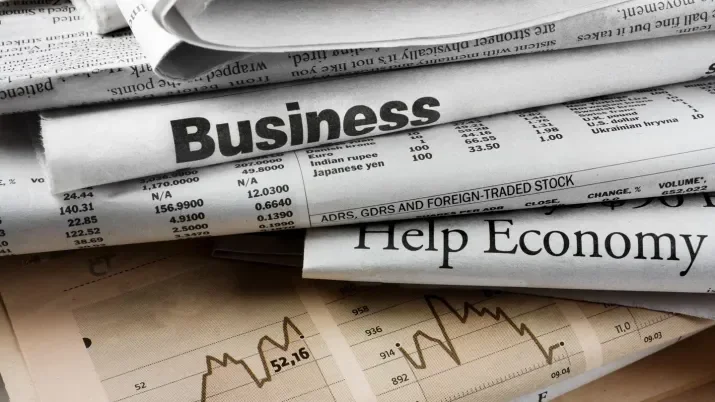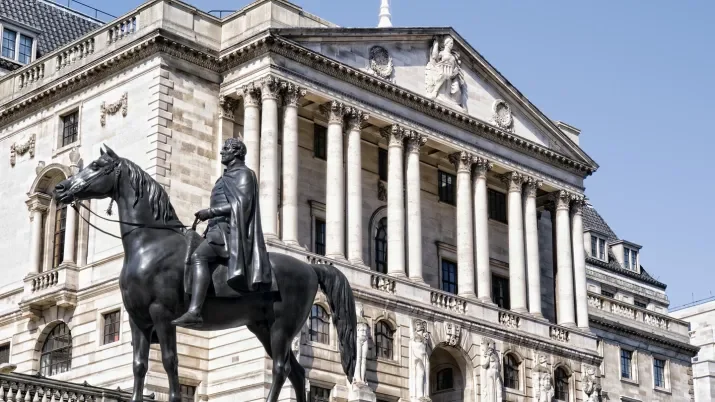TwentyFour

Investor Nervousness Priced In?
Fixed income markets have experienced a reasonable correction over recent weeks and, for higher-yielding indices at least, their first negative period so far this year.
TwentyFour

Can Demand Keep Pace With Record High Yield Supply?
Given the prospect of central bank tapering and ultimately interest rate rises are looming ever larger, it is no surprise dealmakers are trying to take advantage of attractive financing terms while they still exist.
TwentyFour

European Bank Treasurers Dust Off Their Pre-QE Funding Plans
While bank treasurers may have to work a bit harder this year-end to formulate wholesale funding plans, the ABS market that they may be more reliant on going forward is experiencing a strong resurgence, which should ease the process of weaning off central bank funding.
TwentyFour

Navigating The New Bond Volatility
This looks to us like a buy-into-the-dip opportunity, but investors should be wary of taking on too much rate sensitivity as the move in risk-free curves is likely to persist until the rate hike cycle is actually on the way.

Why BoE Hiking First May Be Best for Bonds
In the last month, global government bond curves have had a torrid time, with significant steepening seen across US Treasury, UK Gilt and German Bund yields.
TwentyFour

Rates Become The Source of Risk Again
From time to time, Treasury yields actually become the source of risk for financial markets.
TwentyFour

Should Investors Fear a Hawkish Tilt?
On Wednesday, the Fed moved one step closer to tapering and even put quite a clear timeframe for it, while on Thursday, the Bank of England openly talked about rate hikes.
TwentyFour

Stagflation – Probable or Panic?
Our base case is for a continuation of quite high growth and a modest inflation overshoot. For bond investors, positioning for stagflation could be a dangerous trade if that base case bears out
TwentyFour

Winter is Coming
It will take time for this sector to recover and we are likely to see more suppliers collapse in the coming weeks and months.
TwentyFour

The Conditions for Tapering Already Exist
With ample job openings, inflation well ahead of target, financial conditions that are certainly not tight and strong economic growth, the obvious question is what does the Fed need to see to finally start tapering its asset purchases?

How do ABS and CLO Investors Trade Bonds?
BWIC – or bids wanted in competition – lists, are a unique characteristic of the ABS and CLO markets, where they are widely used in secondary trading when investors are looking to sell bonds.

For Bonds, Q4 Will Present Similar Challenges to Q1
As we rapidly descend upon the fourth quarter of this extraordinary year, we think some of the risks fixed income investors faced back in Q1 will rear their heads again before the end of 2021.
TwentyFour

Credit Backdrop Shows More Upside for Euro High Yield
Despite the impressive returns of Euro HY over the last year or so, the backdrop for the asset class continues to suggest there is more upside to come.
TwentyFour

How Much Supply is There to Come?
This supply surge can be very welcome for those investors with cash to put to work, though it is also eyed with caution.

Markets Rangebound For Now
As the Delta variant establishes a hold in many countries, forcing some governments to re-assess reopening policies, the market is beginning to feel its impact. The implication on growth remains unclear, but early indications suggest the growth rate may have peaked for this year, albeit continuing its recovery.
TwentyFour

German Multifamily CMBS – HAUS or BRIDGE?
Last week, Morgan Stanley successfully brought the first public German Multifamily CMBS deal (HAUS - Eloc 39) to market since 2013. Despite coming to the market in the middle of the summer, the deal has attracted strong demand across the capital stack.
Quality Growth Boutique

Beijing is changing growth objectives. What’s around the corner?
Recently Chinese regulators have become more assertive, causing concern among the international investor community. The key in helping investors navigate and, hopefully profit from these changes, is to understand the bigger picture and what the government is ultimately trying to achieve.
TwentyFour

Don’t Fight the Fundamentals on US High Yield
When combined with other prevalent market dynamics, the favourable ratings trend paves the way for a highly supportive fundamental terrain as we advance through the cycle and one that is ideal for portfolio managers selecting credits.
TwentyFour

The End of the Road for Petrolheads
We can model all kinds of credit risk as long as there is enough protection in the structure for investors to get comfortable with a degree of residual value risk.
TwentyFour

Dull Summer in CLO Land? Maybe Not
After a hectic first half of the year, most investors, including us, were hoping for a dull summer to recharge our batteries, but it seems there’s no respite from the CLO machine.

Five ABS Deals You Didn’t Know You Knew
As many of you know, with the roots of our business firmly embedded in the European ABS market, we have long sought to dispel the myths surrounding our market by explaining its underlying mechanics and how investors can fully exploit its unique properties.
TwentyFour

What We Can Learn From Spread Differentials
It is quite rare that we recommend playing in the very bottom of the credit spectrum because CCC rated bonds are where at least 95% of all defaults come from, and are significantly more volatile than we would like.
TwentyFour

Bank Balance Sheets Continue to Strengthen
We agree that banks are sitting with an abundance of excess capital and will use some of it to repay shareholder support. However, capital buffers will remain elevated for some time to come,
TwentyFour

Four Lessons for Bond Investors
If we suppose a bond investor views an upcoming event as a potential threat to their positioning, they may attempt to hedge their portfolio with another position. The event passes, and the hedge works, but to the investor maintaining the hedge seems like a good idea in the aftermath. Do you maintain the position or remove it?
